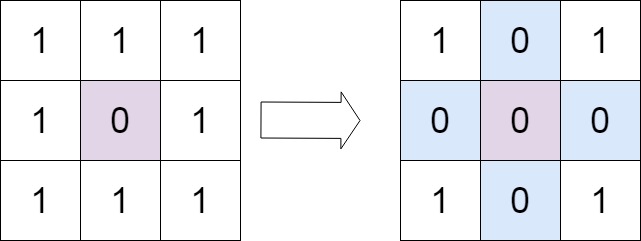73. Set Matrix Zeroes
🟧 Medium
Given an m x n integer matrix matrix, if an element is 0, set its entire row and column to 0's.
You must do it in place.
Follow up:
A straightforward solution using O(mn) space is probably a bad idea. A simple improvement uses O(m + n) space, but still not the best solution. Could you devise a constant space solution?
Example 1

Input: matrix = [[1,1,1],[1,0,1],[1,1,1]] Output: [[1,0,1],[0,0,0],[1,0,1]]
Example 2
Input: matrix = [[0,1,2,0],[3,4,5,2],[1,3,1,5]] Output: [[0,0,0,0],[0,4,5,0],[0,3,1,0]]
Constraints
m == matrix.lengthn == matrix[0].length1 <= m, n <= 200-2^31 <= matrix[i][j] <= 2^31 - 1
Solution
My Solution
Optimal solution

Leetcode: link
Last updated
Was this helpful?